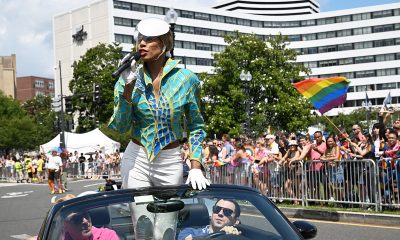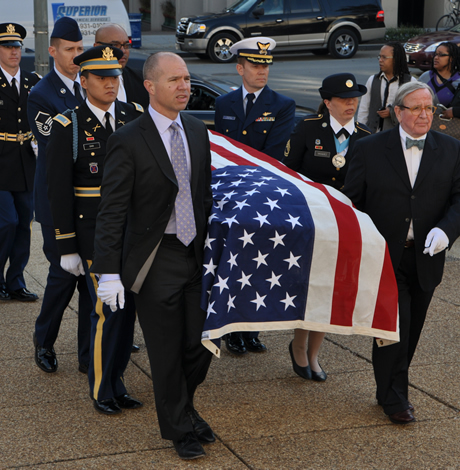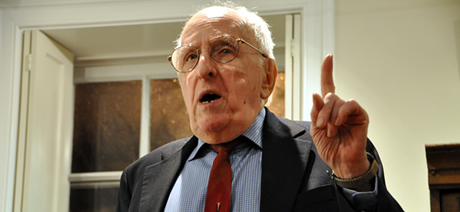Books
‘Memorial’ is one of the best books of the year
A brilliant debut from acclaimed queer author Bryan Washington
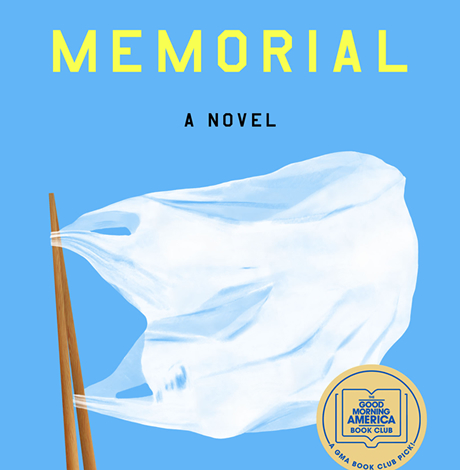
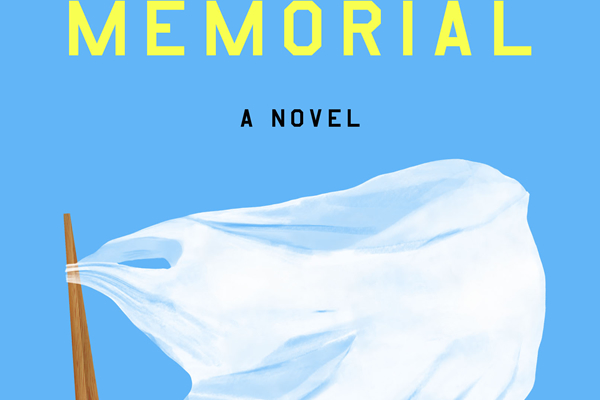
‘Memorial’
By Bryan Washington
c.2020, Riverhead Books
$27/320 pages
Many books come out in a year. Often, they’re provocative, absorbing or, at the very least, brain candy. But, like a hastily eaten fast-food meal, they’re quickly forgotten. No matter how worthy, memories of them will vanish as quickly as a fun size pack of M&Ms.
“Memorial,” the debut novel by acclaimed queer author Bryan Washington, is unforgettable. You’ll devour it, feasting on every page. Its flavor — tender, spicy, and poignant – will stick to your palate leaving you hungering for more.
“Memorial” is the story of Ben (short for Benson) and Mike, a queer couple, who live in Houston’s slowly gentrifying Third Ward. They’ve been together for several years, but their relationship is fraying. Ben, who is Black, is a teacher in a day care center. He grew up in a middle-class household. His parents are divorced. His father, an alcoholic, is a former local TV weatherman and occasional substitute teacher. His parents don’t accept his sexuality when he reveals that he’s HIV positive.
Mike, a chef, is Asian. His family was poor. During an argument, Mike tells Ben “you had money.”
Growing up, roaches roamed where he slept, Mike says to Ben.
Mike’s family came to Houston from Japan. When he was young, Mike’s parents returned to Japan. As “Memorial” begins, Mike’s parents have been living in Japan for years. His mother, Mitsuko, who’s divorced from his father, Eiju, has just arrived in Houston for a visit. But just as his time with his Mom is about to begin, Mike learns that Eiju, in Osaka, Japan is terminally ill. Like Ben’s folks, Mike’s parents aren’t comfortable with his sexuality. Eiju, like Ben’s Dad does to Ben, aims homophobic slurs at Mike. Mitsuko, like Ben’s Mom, knows that her son is queer, but can’t bear to talk about it.
Suddenly, Ben and Mitsuko find themselves alone, living for an undetermined amount of time, with a stranger. That would be awkward enough. On top of that, they’re an Asian hetero woman and Black, queer man thrown together in a small space. They have to share not only the bathroom, but the kitchen. Mitsuko, Ben discovers, has rearranged the kitchen. For what seems like eons, she barely speaks to him. Except to say, “so you’re Black.”
Meanwhile, Ben keeps waiting for a text from Mike, while wondering when or if they should break up.
Mike finds himself in Osaka – on the other side of the world – in close quarters with his father who he hasn’t seen in years. He hasn’t been in Japan since he was a child. He’s trying to be a caregiver for a Dad who he hasn’t connected with for ages. Eiju operates a small bar. One of his caregiving tasks, Mike learns, is to help his Dad manage the bar. He gets to know the regulars while thinking about hooking up with guys.
This is awkward on steroids!
In lesser hands, “Memorial,” would have been a jumbled mix of second-rate sit-com and soap opera. But Washington is a brilliant writer. “Brilliant” is overused. Yet, “brilliant” is the only apt word to describe Washington’s work.
Washington, 27, who lives in Houston, has won numerous awards. He is a National Book Award 5 Under 35 honoree, winner of the Dylan Thomas Prize and the Ernest J. Gaines Award for Literary Excellence. Washington’s first book, “Lot,” his acclaimed 2019 short story collection, was a New York Times Notable Book and on the best-of-the-year lists of Vanity Fair, NPR, and other outlets. He has written for The New Yorker, BuzzFeed, The Paris Review, and many other publications.
“Memorial” is narrated in turns by Benson and Mike. Washington’s style is deceptively simple. Reading it feels like you’re eavesdropping on the couple’s private thoughts and conversations. From the beginning as Ben says, “Mike’s taking off for Osaka, but his mother’s flying into Houston,” you might think, “this is how people talk every day, I could write a story like this.”
Sorry, you’d hit the skids trying.
“Memorial” is one of the best books of this or any year.
Books
Feminist fiction fans will love ‘Bog Queen’
A wonderful tale of druids, warriors, scheming kings, and a scientist
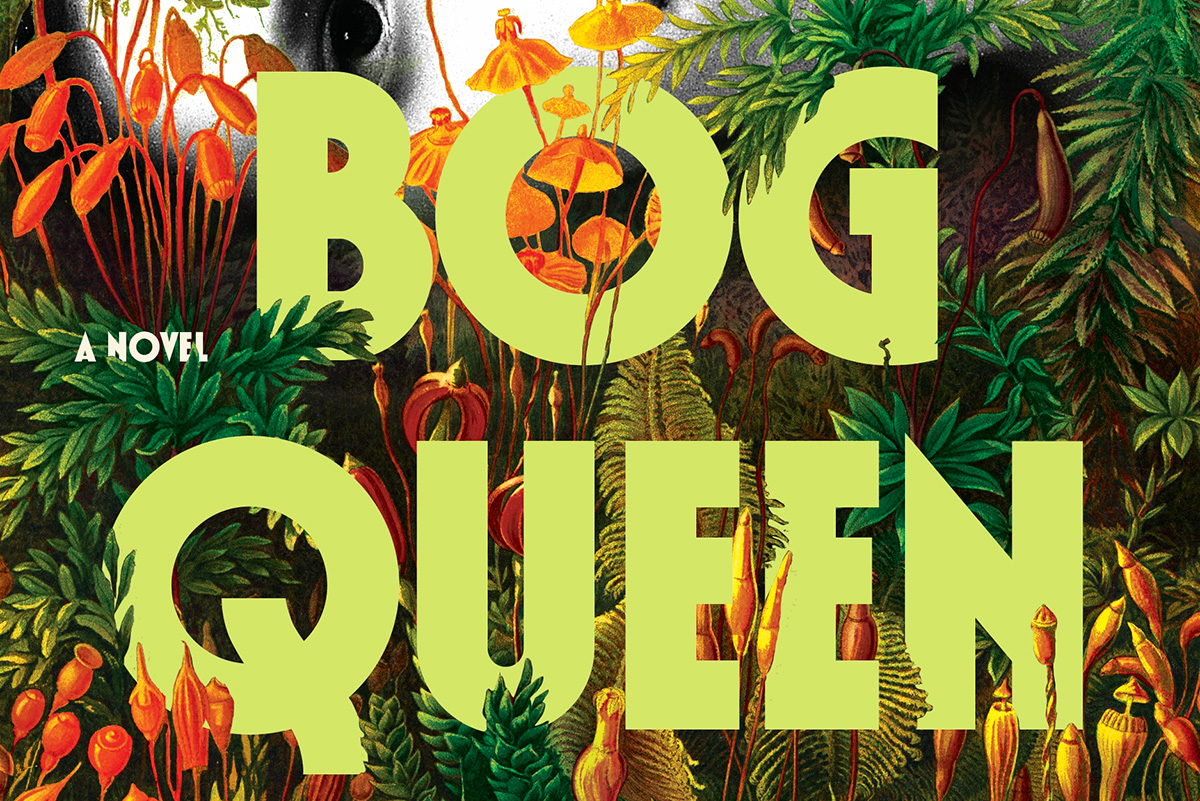
‘Bog Queen’
By Anna North
c.2025, Bloomsbury
$28.99/288 pages
Consider: lost and found.
The first one is miserable – whatever you need or want is gone, maybe for good. The second one can be joyful, a celebration of great relief and a reminder to look in the same spot next time you need that which you first lost. Loss hurts. But as in the new novel, “Bog Queen” by Anna North, discovery isn’t always without pain.

He’d always stuck to the story.
In 1961, or so he claimed, Isabel Navarro argued with her husband, as they had many times. At one point, she stalked out. Done. Gone, but there was always doubt – and now it seemed he’d been lying for decades: when peat cutters discovered the body of a young woman near his home in northwest England, Navarro finally admitted that he’d killed Isabel and dumped her corpse into a bog.
Officials prepared to charge him.
But again, that doubt. The body, as forensic anthropologist Agnes Lundstrom discovered rather quickly, was not that of Isabel. This bog woman had nearly healed wounds and her head showed old skull fractures. Her skin glowed yellow from decaying moss that her body had steeped in. No, the corpse in the bog was not from a half-century ago.
She was roughly 2,000 years old.
But who was the woman from the bog? Knowing more about her would’ve been a nice distraction for Agnes; she’d left America to move to England, left her father and a man she might have loved once, with the hope that her life could be different. She disliked solitude but she felt awkward around people, including the environmental activists, politicians, and others surrounding the discovery of the Iron Age corpse.
Was the woman beloved? Agnes could tell that she’d obviously been well cared-for, and relatively healthy despite the injuries she’d sustained. If there were any artifacts left in the bog, Agnes would have the answers she wanted. If only Isabel’s family, the activists, and authorities could come together and grant her more time.
Fortunately, that’s what you get inside “Bog Queen”: time, spanning from the Iron Age and the story of a young, inexperienced druid who’s hoping to forge ties with a southern kingdom; to 2018, the year in which the modern portion of this book is set.
Yes, you get both.
Yes, you’ll devour them.
Taking parts of a true story, author Anna North spins a wonderful tale of druids, vengeful warriors, scheming kings, and a scientist who’s as much of a genius as she is a nerd. The tale of the two women swings back and forth between chapters and eras, mixed with female strength and twenty-first century concerns. Even better, these perfectly mixed parts are occasionally joined by a third entity that adds a delicious note of darkness, as if whatever happens can be erased in a moment.
Nah, don’t even think about resisting.
If you’re a fan of feminist fiction, science, or novels featuring kings, druids, and Celtic history, don’t wait. “Bog Queen” is your book. Look. You’ll be glad you found it.
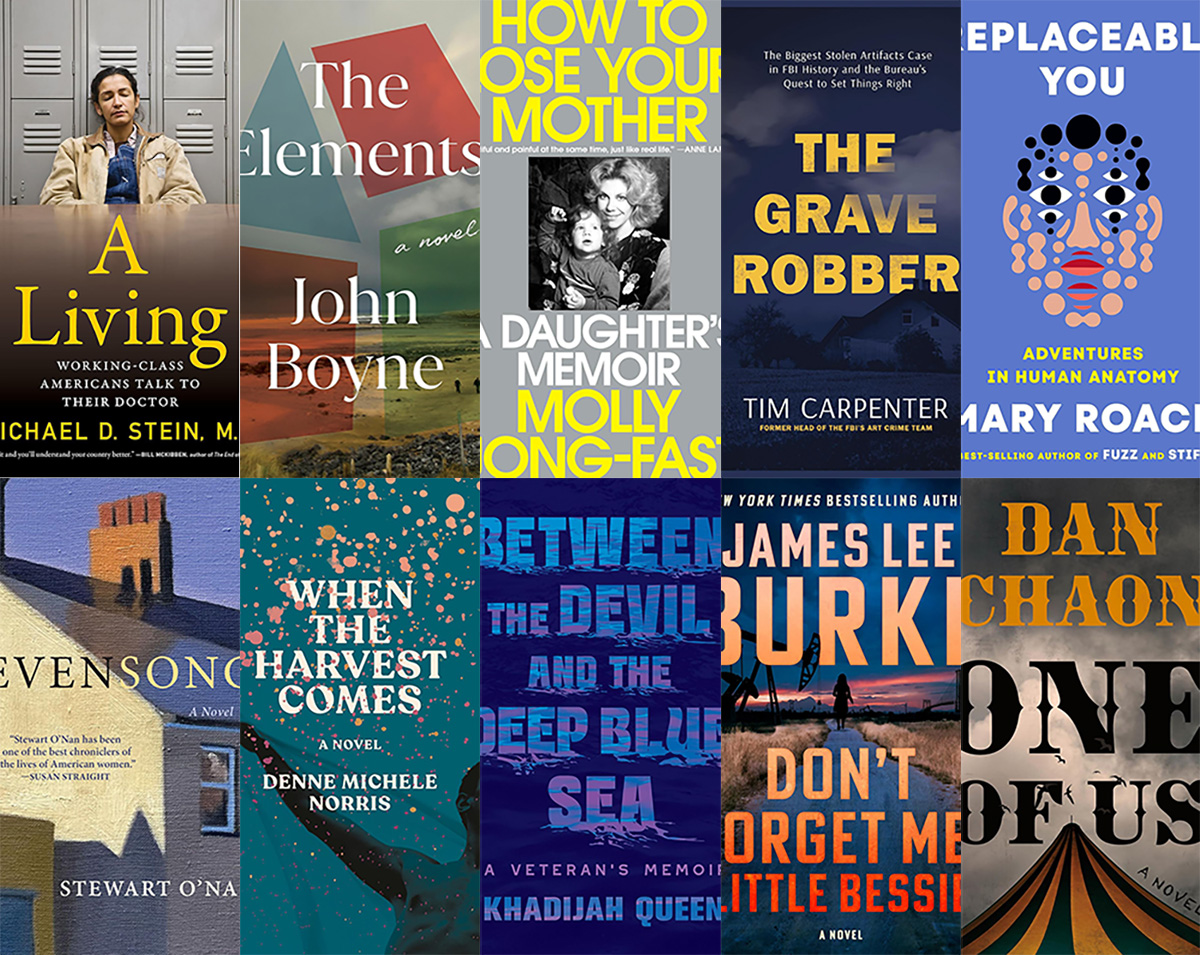
This past year, you’ve often had to make do.
Saving money here, resources there, being inventive and innovative. It’s a talent you’ve honed, but isn’t it time to have the best? Yep, so grab these Ten Best of 2025 books for your new year pleasures.
Nonfiction
Health care is on everyone’s mind now, and “A Living: Working-Class Americans Talk to Their Doctor” by Michael D. Stein, M.D. (Melville House, $26.99) lets you peek into health care from the point of view of a doctor who treats “front-line workers” and those who experience poverty and homelessness. It’s shocking, an eye-opening book, a skinny, quick-to-read one that needs to be read now.
If you’ve been doing eldercare or caring for any loved one, then “How to Lose Your Mother: A Daughter’s Memoir” by Molly Jong-Fast (Viking, $28) needs to be in your plans for the coming year. It’s a memoir, but also a biography of Jong-Fast’s mother, Erica Jong, and the story of love, illness, and living through the chaos of serious disease with humor and grace. You’ll like this book especially if you were a fan of the author’s late mother.
Another memoir you can’t miss this year is “Between the Devil and the Deep Blue Sea: A Veteran’s Memoir” by Khadijah Queen (Legacy Lit, $30.00). It’s the story of one woman’s determination to get out of poverty and get an education, and to keep her head above water while she goes below water by joining the U.S. Navy. This is a story that will keep you glued to your seat, all the way through.
Self-improvement is something you might think about tackling in the new year, and “Replaceable You: Adventures in Human Anatomy” by Mary Roach (W.W. Norton & Company, $28.99) is a lighthearted – yet real and informative – look at the things inside and outside your body that can be replaced or changed. New nose job? Transplant, new dental work? Learn how you can become the Bionic Person in real life, and laugh while you’re doing it.
The science lover inside you will want to read “The Grave Robber: The Biggest Stolen Artifacts Case in FBI History and the Bureau’s Quest to Set Things Right” by Tim Carpenter (Harper Horizon, $29.99). A history lover will also want it, as will anyone with a craving for true crime, memoir, FBI procedural books, and travel books. It’s the story of a man who spent his life stealing objects from graves around the world, and an FBI agent’s obsession with securing the objects and returning them. It’s a fascinating read, with just a little bit of gruesome thrown in for fun.
Fiction
Speaking of a little bit of scariness, “Don’t Forget Me, Little Bessie” by James Lee Burke (Atlantic Monthly Press, $28) is the story of a girl named Bessie and her involvement with a cloven-hooved being who dogs her all her life. Set in still-wild south Texas, it’s a little bit western, part paranormal, and completely full of enjoyment.
“Evensong” by Stewart O’Nan (Atlantic Monthly Press, $28) is a layered novel of women’s friendships as they age together and support one another. The characters are warm and funny, there are a few times when your heart will sit in your throat, and you won’t be sorry you read it. It’s just plain irresistible.
If you need a dark tale for what’s left of a dark winter season, then “One of Us” by Dan Chaon (Henry Holt, $28), it it. It’s the story of twins who become orphaned when their Mama dies, ending up with a man who owns a traveling freak show, and who promises to care for them. But they can’t ever forget that a nefarious con man is looking for them; those kids can talk to one another without saying a word, and he’s going to make lots of money off them. This is a sharp, clever novel that fans of the “circus” genre shouldn’t miss.
“When the Harvest Comes” by Denne Michele Norris (Random House, $28) is a wonderful romance, a boy-meets-boy with a little spice and a lot of strife. Davis loves Everett but as their wedding day draws near, doubts begin to creep in. There’s homophobia on both sides of their families, and no small amount of racism. Beware that there’s some light explicitness in this book, but if you love a good love story, you’ll love this.
Another layered tale you’ll enjoy is “The Elements” by John Boyne (Henry Holt, $29.99), a twisty bunch of short stories that connect in a series of arcs that begin on an island near Dublin. It’s about love, death, revenge, and horror, a little like The Twilight Zone, but without the paranormal. You won’t want to put down, so be warned.
If you need more ideas, head to your local library or bookstore and ask the staff there for their favorite reads of 2025. They’ll fill your book bag and your new year with goodness.
Season’s readings!
The Blade may receive commissions from qualifying purchases made via this post.
Books
This gay author sees dead people
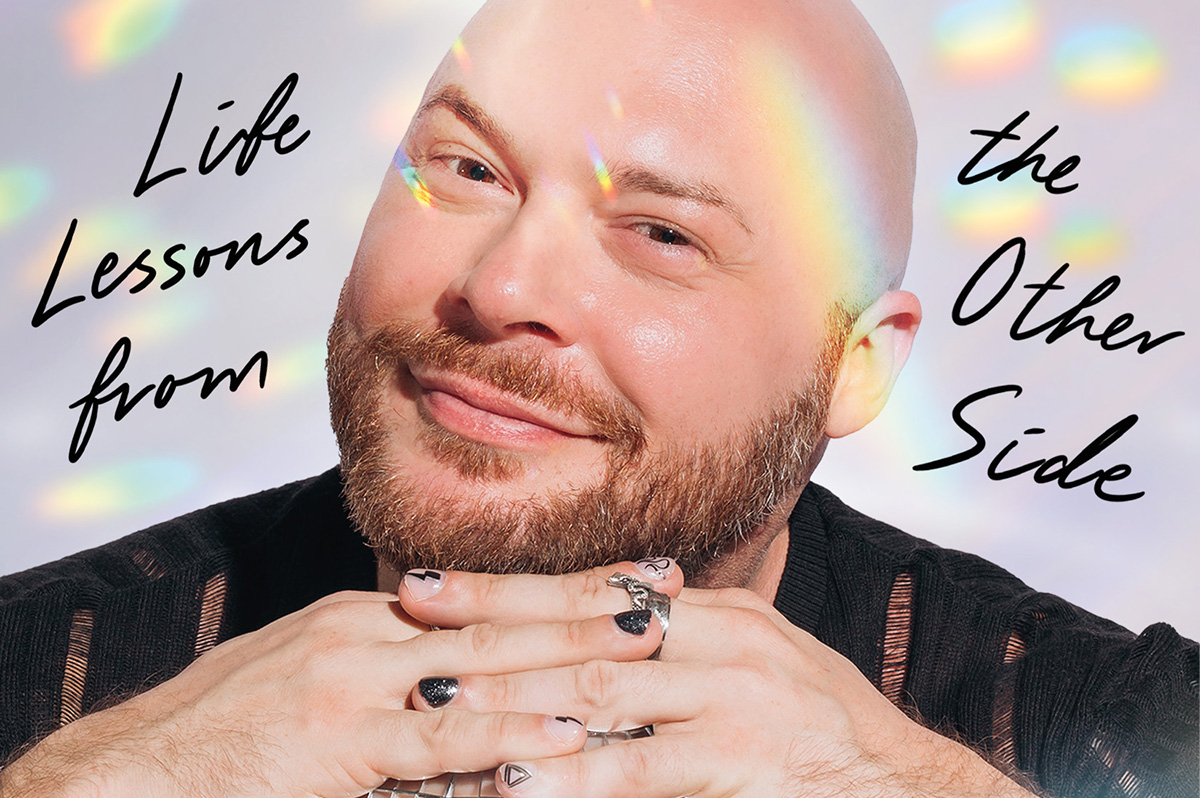
‘Are You There Spirit? It’s Me, Travis’
By Travis Holp
c.2025, Spiegel and Grau
$28/240 pages
Your dad sent you a penny the other day, minted in his birth year.
They say pennies from heaven are a sign of some sort, and that makes sense: You’ve been thinking about him a lot lately. Some might scoff, but the idea that a lost loved one is trying to tell you he’s OK is comforting. So read the new book, “Are You There, Spirit? It’s Me, Travis” by Travis Holp, and keep your eyes open.

Ever since he was a young boy growing up just outside Dayton, Ohio, Travis Holp wanted to be a writer. He also wanted to say that he was gay but his conservative parents believed his gayness was some sort of phase. That, and bullying made him hide who he was.
He also had to hide his nascent ability to communicate with people who had died, through an entity he calls “Spirit.” Eventually, though it left him with psychological scars and a drinking problem he’s since overcome, Holp was finally able to talk about his gayness and reveal his otherworldly ability.
Getting some people to believe that he speaks to the dead is still a tall order. Spirit helps naysayers, as well as Holp himself.
Spirit, he says, isn’t a person or an essence; Spirit is love. Spirit is a conduit of healing and energy, speaking through Holp in symbolic messages, feelings, and through synchronistic events. For example, Holp says coincidences are not coincidental; they’re ways for loved ones to convey messages of healing and energy.
To tap into your own healing Spirit, Holp says to trust yourself when you think you’ve received a healing message. Ignore your ego, but listen to your inner voice. Remember that Spirit won’t work on any fixed timeline, and its only purpose is to exist.
And keep in mind that “anything is possible because you are an unlimited being.”
You’re going to want very much to like “Are You There, Spirit? It’s Me, Travis.” The cover photo of author Travis Holp will make you smile. Alas, what you’ll find in here is hard to read, not due to content but for lack of focus.
What’s inside this book is scattered and repetitious. Love, energy, healing, faith, and fear are words that are used often – so often, in fact, that many pages feel like they’ve been recycled, or like you’ve entered a time warp that moves you backward, page-wise. Yes, there are uplifting accounts of readings that Holp has done with clients here, and they’re exciting but there are too few of them. When you find them, you’ll love them. They may make you cry. They’re exactly what you need, if you grieve. Just not enough.
This isn’t a terrible book, but its audience might be narrow. It absolutely needs more stories, less sentiment; more tales, less transcendence and if that’s your aim, go elsewhere. But if your soul cries for comfort after loss, “Are You There, Spirit? It’s Me, Travis” might still make sense.
The Blade may receive commissions from qualifying purchases made via this post.

